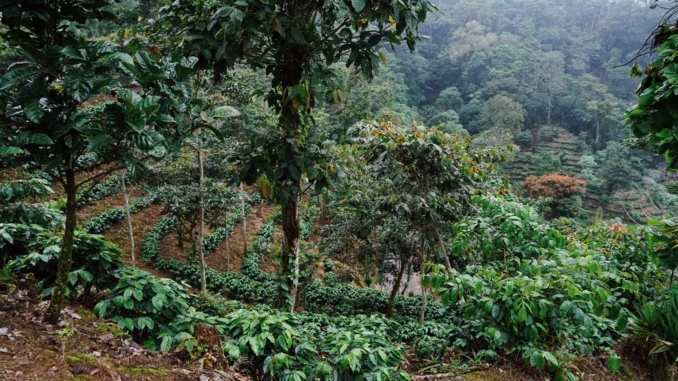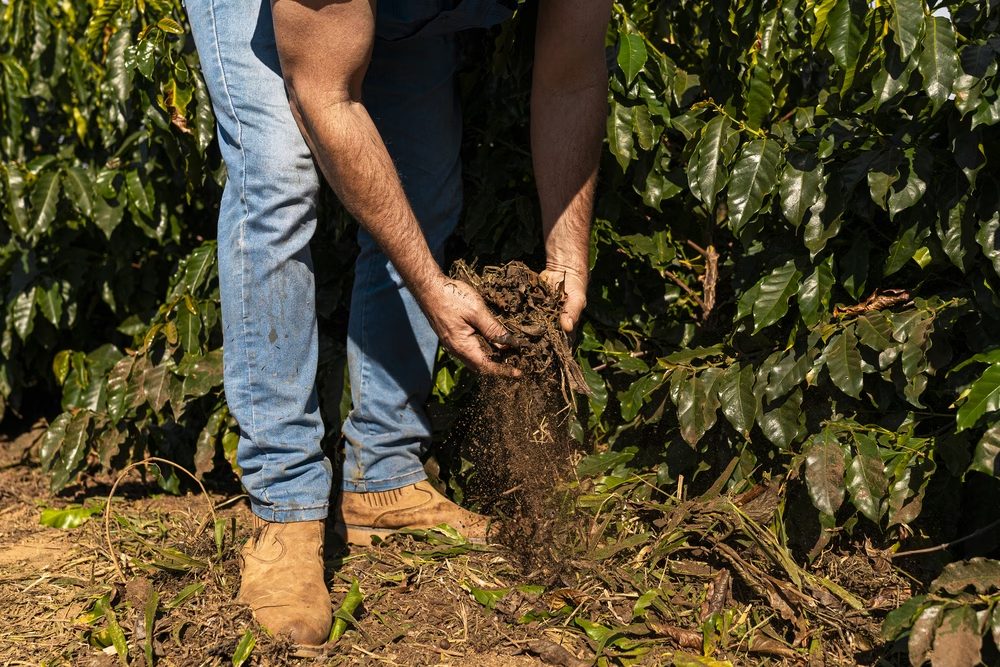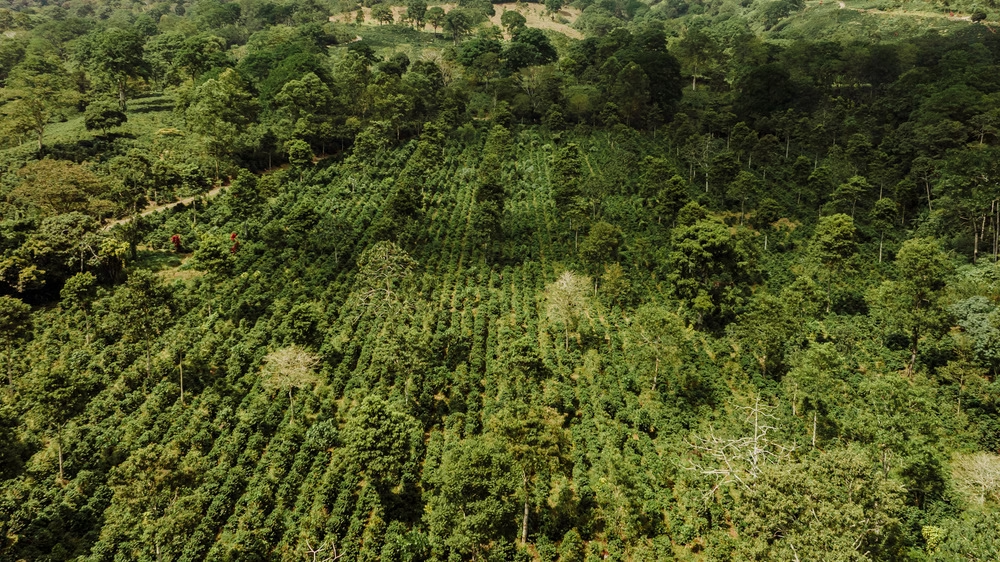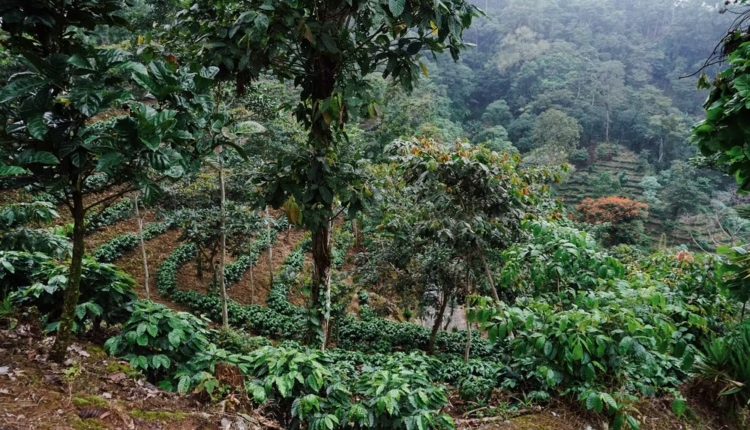The Next Frontier of Sustainability: About Rainforest Alliance's Regenerative Agriculture Certification

The newly launched certification aims to reshape the future of coffee farming.
BY BHAVI PATEL
BARISTA MAGAZINE ONLINE
Featured photo: Coffee among native plants at Finca El Platanillo in Guatemala. Photo courtesy of Creagh Cross and Rainforest Alliance.
The specialty-coffee industry has long championed sustainability, but as climate volatility intensifies and half of current arabica-growing regions face unsuitability by 2050, the question is not whether we are doing enough—it is whether we are thinking big enough. Rainforest Alliance‘s newly launched Regenerative Agriculture Certification offers an answer that goes beyond minimizing harm to actively healing the land that feeds our industry.
From “Do No Harm” to “Give Back More”
Traditional sustainability models focus on reducing negative impacts, but regenerative agriculture flips the script entirely. Kevin Lardner, Senior Coffee Trade Relationship Manager at Rainforest Alliance, explains, “The new certification is rooted in a science-driven standard designed to help reshape the future of farming, starting with coffee. The comprehensive framework addresses soil health, crop resilience, water conservation, and biodiversity while integrating critical social impacts—making it one of the sector’s most holistic certifications.”
This paradigm shift could not be timelier. As extreme weather events disrupt yields and supply chains, the industry needs more than Band-Aid solutions. “Markets need to move beyond a ‘do no harm’ mindset and help scale the global transition to an agricultural model where every cup of coffee gives back more than it takes from the land and the people who care for it,” Kevin says.


The Roaster’s Advantage: Resilience Meets Credibility
For coffee roasters and buyers, this certification translates into tangible business benefits that extend far beyond feel-good marketing. Enhanced soil fertility, increased biodiversity, and improved water retention create conditions for higher yields and reduced input costs at origin. The result? More stable, long-term supply relationships with farming partners are better equipped to weather climate shocks.
“The Regenerative Agriculture Standard equips farmers with the guidance and support they need to implement these practices effectively,” Kevin told Barista Magazine. “For companies, this means investing in partners who are better positioned to withstand climate shocks and contribute to more resilient, high-performing supply chains.”
In an era of heightened ESG (Environmental, Social, and Governance) scrutiny, the certification also provides robust reporting data and transparent communications frameworks that help companies demonstrate genuine progress rather than “greenwashing”—masquerading under the guise of environmental responsibility, while actually making no positive impact. For brands navigating an increasingly skeptical consumer landscape, this verification system offers differentiation grounded in measurable impact.
The Customer Connection: Trust in a Crowded Space
Consumer demand for transparency has never been higher, and confusion around sustainability claims has never been greater. The Rainforest Alliance’s recognizable green frog seal already carries significant trust equity. When the new regenerative seal launches for consumer-facing communications in 2026, it will signal that a coffee actively contributes to ecosystem restoration, soil regeneration, biodiversity conservation, and climate resilience.
This clarity matters in a marketplace where vague claims proliferate. Customers choosing regenerative-certified coffees can confidently support farms that prioritize long-term environmental stewardship alongside social responsibility.


Accountability That Actually Works
The certification’s credibility rests on rigorous verification protocols. Certificate holders must meet specific thresholds at each certification cycle stage while collecting data on soil cover, pesticide monitoring, and pruning practices. Third-party auditors conduct field verifications and multi-stakeholder interviews following international methodologies. Non-conformities trigger a ten-week correction process, ensuring standards are not just aspirational—they are enforceable. Continuous improvement is built into the framework, with collected data informing both farm-level progress and standard evolution over time.
The coffee industry stands at a crossroads where business continuity and environmental regeneration are no longer separate concerns but interdependent imperatives. Rainforest Alliance’s Regenerative Agriculture Certification offers roasters, buyers, and ultimately consumers a pathway to participate in agriculture that restores rather than depletes. In a sector facing existential climate challenges, that is not just good ethics—it is an essential business strategy.
ABOUT THE AUTHOR
Bhavi Patel is a food writer focusing on coffee and tea, and a brand-building specialist with a background in dairy technology and an interest in culinary history and sensory perception of food.
Subscribe and More!
As always, you can read Barista Magazine in paper by subscribing or ordering an issue.
Read the October + November 2025 Issue for free with our digital edition.
For free access to more than five years’ worth of issues, visit our digital edition archives here.
Source: Barista Magazine



